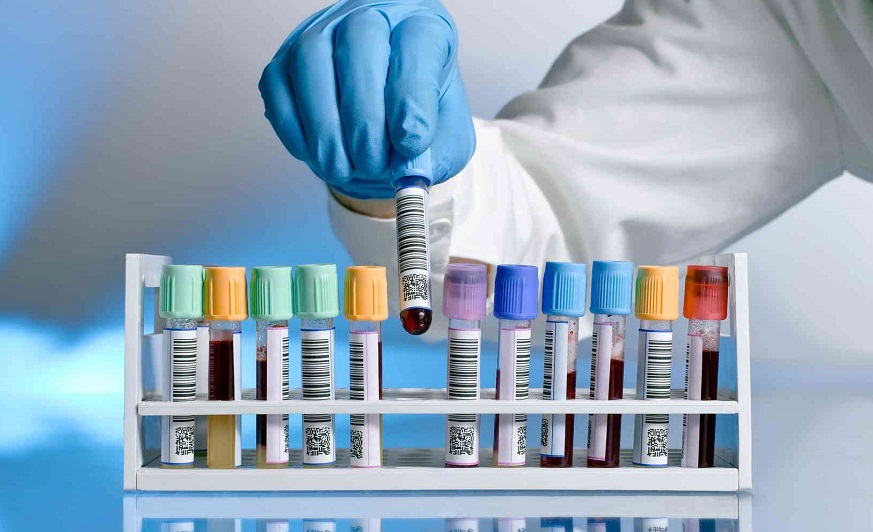The main aim of clinical biochemistry is to conduct physical and chemical medical analysis through blood, urine, stool, spinal fluid samples from the body. Valuable information can be obtained about the individual’s health as a result of these analyses. The biochemistry laboratory centre plays an important role in diagnosing various diseases, diagnosing the severity of the disease, diagnosing a disease that has not yet shown symptoms, determining the efficiency of a treatment and predicting a relapse of a disease. For this reason, it is essential to present accurate, precise and consistent results in laboratory analyses to physicians and patients as soon as possible. Modern laboratory equipment is used at the Near East University Clinical Biochemistry Laboratory under the control of an experienced laboratory team. The laboratory, which has been reported to conduct over 700,000 tests, provides uninterrupted service 24/7 with a wide range of over 200 tests that it can conduct. For routine laboratory tests, our available devices include Abbott Diagnostics Architect and Alinity, Sysmex XN-Series, Stago Haemostasis Systems, Radiometer and Siemens Healthineers AG systems, which have the capacity to perform 1,200 biochemical tests, 400 hormone and ELISA tests, and 200 complete blood counts per hour. The test menu is dynamically updated and new tests are offered in line with the needs. Regular quality control studies are carried out before, during and after the analysis. Near East University Hospital Clinical Biochemistry Laboratory works with patient-oriented planning, without compromising institutional principles and high quality standards. The Near East University Hospital Clinical Biochemistry Laboratory is open for 24/7 service including on weekends, official and religious holidays for those who want to conduct tests without being examined by a doctor. All routine biochemistry tests are followed up with daily internal quality control. There are certain points that doctors and patients must watch out for before the biochemical analysis, which can affect the test results: - For routine tests it is recommended that the blood should be drawn before 11:00 in the morning. Blood levels of some biological substances such as cortisol, iron, vitamin B12, folate, parathormone (PTH) show great changes during the day. Since serious differences can be observed between the results of the analysis performed in the morning and in the afternoon, it is recommended to give blood in the morning for laboratory tests, especially for these examinations. For some special tests (cortisol, ACTH, etc.) it may be necessary to give blood earlier. - Blood samples must be given after at least 8 hours of fasting and nothing must be eaten or drunk (including coffee, tea, smoking cigarettes) other than water during this period. Some tests must be conducted after fasting. The main ones of these include: Fasting blood sugar, glucose tolerance test, lipid profile, iron, vitamin B12 / folate, alkaline phosphatase, phosphorus, magnesium, insulin, parathormone. - One day before giving blood, heavy and fatty foods should not be eaten, and if possible, alcoholic beverages should not be consumed 24 hours before. Otherwise, false may peaks may be observed in some test results, especially the lipid profile. Heavy exercise should be avoided before a blood test. Exercise may cause elevation of AST, LDH, Lactate, and may affect coagulation test results (INR, APTT, Fibrinogen). - The usage of drugs can affect the results of biochemical tests. Regularly used medication must be continued unless the doctor states otherwise. If blood must be given for testing the drug levels in the blood, then the blood must be taken just before the medication is taken (e.g., if you are using thyroid medication, you must first give blood then take your medication). Some of the tests we conduct on serum, plasma, whole blood, urine, stool and various body fluids are as follows:
0. Floor Eastern Block Department of Polyclinics Monday - Sunday 7/24 +90 (392) 444 0 535
Policlinic Area
Opening Hours
Location
